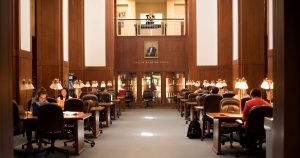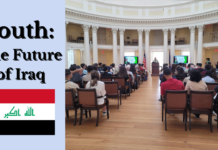The debate over the potential removal of Robert E. Lee and Thomas “Stonewall” Jackson statues sparked the tragic events of August 11th and 12th — two days that will live in infamy in Charlottesville and across the country. Having received national attention, the crisis-inducing rallies will forever be tied to our city.
Although it is no longer garnering the same nation-wide coverage, the debate over Charlottesville statues still exists in current litigation in the city. Due to the lack of national coverage, many may find it difficult to keep up with the residual legal battles being fought in the Charlottesville courts. To address this issue, librarians at the University of Virginia’s Law School have created a website to keep people informed about the current disagreements involving the Charlottesville statues.
Randall Flaherty, a Special Collections Librarian at the Arthur J. Morris Law Library explained that this past year drastically increased the amount of questions concerning the statues in Charlottesville.
“The Law Library decided to put together this research guide to the Lee and Jackson statues directly in response to the numerous reference questions we received about the statues over the past year,” Flaherty stated in an interview with WUVA News. “We recognized a strong and current research need for legal and historical documents related to the statues, and we wanted to create an open access resource to serve that need.”
The website provides a wide array of materials that researchers can use for free. Ranging from deed records to a fully digitized collection of docket files from the court case, Payne v. City of Charlottesville, the website encompasses a wide array of information into a single, concentrated platform. Flaherty said that it took a fair amount of time and money to amass all the information for the website.
“Most of the materials on our site are available locally, but we felt it was within our mission to help make these research materials more accessible and discoverable. The court case filings that we include on our site, for example, were available only at the Charlottesville court house, and at a fee,” she said.
But the law library’s goals are not yet finished. Flaherty and her team intend to continue creating digital research material and making them more accessible to civilian researchers.
“We are continuing to update the statues research guide, and by the end of April plan to have a fully-digitized run of Charlottesville City Council minutes from 1916 to 1924 available on our website,” Flaherty said. “Over the next year, we expect to build this work into a larger guide to researching the legal history of Charlottesville.”
For people interested in the debate about Charlottesville statues, they can access the website at: http://statues.law.virginia.edu
.
















